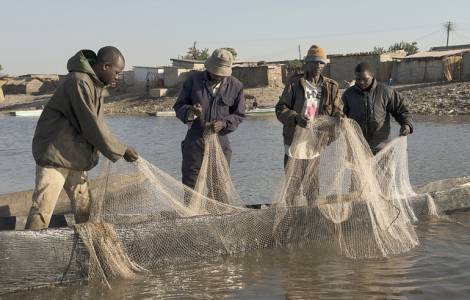
WorldFish
Mongu (Agenzia Fides) - A group of researchers, with the support of the Cultivate Africa’s Future (CultiAF) Fund, an initiative jointly funded by Canada’s International Development Research Centre and the Australian Centre for International Agriculture Research (ACIAR), is working in a newly launched project on post-harvest losses of fish. The three year project, aims at improving effectiveness, reducing losses, and promoting greater equity among the men and women who work in the fisheries sector. The project is led by scientists of the Ministry of Agriculture and Livestock, the University of Zambia and the international organization WorldFish. According to estimates, sub-Saharan Africa has the lowest fish supply per person of any global region, with supply predicted to fall by 20 per cent in the next two decades. Poor processing and management are major factors, resulting in losses. Poor post–harvest handling of fish is said to contribute greatly to the declining per capita fish consumption in Malawi and Zambia.
Working with fishing communities in the Barotse flood plain in Zambia and Lake Chilwa in Malawi, the research team has developed pilot interventions to reduce the identified losses. Typically, fish processors in the area preserve their fish through sun-drying or smoking, and small quantities of fish are sold fresh. However, the processing results in the fish becoming very brittle and easily damaged during transportation, among other losses, destroying the quality and value of the fish. There are four technologies being tried, among which is solar tent drying, a technique where a tent made from plastic sheeting is used. These have the advantage of protecting fish from dust and flies during the drying process and speeding up the time for fish to dry due to elevated temperatures. With the other two technologies: the Choka-Kiun, which uses less firewood for fish smoking, and the soon to be established ice plant by the private sector supported by the project, the fishing community in Western Zambia could be harvesting their way out of poverty. (AP) (Agenzia Fides 25/11/2015)